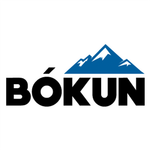Description

Eola

TourCMS
Comprehensive Overview: Eola vs TourCMS
Eola and TourCMS are both software platforms designed to serve the travel, tours, and activity industry. Although they share some similarities in their core functionality, they target slightly different markets and offer unique features that differentiate them from each other.
a) Primary Functions and Target Markets:
Eola:
-
Primary Functions:
- Eola is a comprehensive booking and business management platform designed specifically for experience providers, such as tour operators, activity centers, and adventure sports businesses.
- It offers features like online booking, payment processing, resource management, scheduling, and customer relationship management (CRM).
-
Target Markets:
- Eola's primary target market comprises small to medium-sized enterprise (SME) experience providers, with a focus on outdoor and adventure activities, such as water sports, climbing, hiking, and sightseeing tours.
TourCMS:
-
Primary Functions:
- TourCMS is a cloud-based reservation system specifically aimed at tour operators and travel agents.
- It includes features such as online booking, inventory management, distribution channel management, and reporting.
- Additionally, it offers partnerships with various online travel agencies (OTAs) for extended distribution.
-
Target Markets:
- TourCMS primarily targets small to large tour operators and travel agencies, focusing more broadly on the travel package industry rather than just adventure activities.
b) Market Share and User Base:
-
Eola:
- Eola, being a relatively newer entrant into the market, has been growing steadily, especially in the UK and European markets. It has a strong appeal among small to medium-sized businesses due to its ease of use and modern interface.
- Its market share is increasing in niche segments focused on sports and adventure activities.
-
TourCMS:
- TourCMS has been established longer and enjoys a stable position within the tour operating sector, with a relatively more extensive international presence.
- Because of its integration capabilities and partnerships with distribution channels, it has a substantial user base among medium to large tour operators.
c) Key Differentiating Factors:
Eola:
-
User Experience:
- Eola is known for its intuitive, user-friendly interface, which simplifies the booking and management process for small business owners.
-
Focus on Activities:
- The platform specifically specializes in sports and adventure activities, catering to the specific needs of businesses in this niche.
-
Modern Technology:
- Leveraging modern technology and cloud computing, Eola provides a seamless experience that is mobile-friendly and easy to integrate into existing workflows.
TourCMS:
-
Comprehensive Distribution:
- TourCMS offers extensive distribution options, integrating with numerous OTAs and travel agencies, which provides operators with broader market access.
-
Flexibility and Scalability:
- The platform is scalable to suit businesses of varying sizes, from small agencies to larger tour operators, and offers a robust suite of features suitable for complex travel packages.
-
Partnerships and Integrations:
- With a comprehensive set of APIs, TourCMS allows for significant customization and integration with other systems, providing flexibility for travel businesses with more complex needs.
In summary, while both Eola and TourCMS cater to the broader travel and activity industry, Eola focuses heavily on sports and adventure activities with strong usability for SMEs, whereas TourCMS offers a more extensive set of distribution and management tools, appealing to a broader range of tour operators and travel agencies.
Contact Info

Year founded :
2017
Not Available
Not Available
United Kingdom
Not Available

Year founded :
2003
+44 845 130 3917
Not Available
Switzerland
http://www.linkedin.com/company/tourcms
Feature Similarity Breakdown: Eola, TourCMS
When comparing Eola and TourCMS, two platforms designed to support tour operators and activity providers, we can break down their feature similarities and differences as follows:
a) Common Core Features
-
Booking Management: Both platforms offer robust systems allowing businesses to manage bookings, track availability, and optimize scheduling for tours and activities.
-
Online Payments: Eola and TourCMS support online payment processing, providing secure payment gateways that accommodate multiple currencies and payment methods.
-
Inventory Management: They offer tools for managing the resources required for tours, such as equipment or staff, to ensure that businesses can efficiently allocate resources.
-
Channel Management: Both systems allow integration with various sales channels to increase exposure and sales. They facilitate connections with OTAs (Online Travel Agencies) and other distribution partners.
-
Customer Relationship Management (CRM): Basic CRM features are available, enabling businesses to maintain customer databases, track interactions, and customize communications.
-
Reporting and Analytics: Each platform offers reporting tools to help businesses track performance metrics and gain insights into operations.
b) User Interface Comparison
-
Eola: Eola is known for its modern and intuitive user interface, which is designed to be user-friendly and accessible even for non-technical users. It features a clean design with easy navigation, making it simple for users to find the tools they need.
-
TourCMS: TourCMS also offers a comprehensive user interface, but it may be more complex compared to Eola due to its extensive feature set. While powerful, users might face a steeper learning curve, especially if they require advanced functionalities.
Overall, Eola might be more appealing to businesses looking for straightforward solutions with ease of use, whereas TourCMS offers a more feature-rich environment that might require greater familiarity to navigate effectively.
c) Unique Features
-
Eola:
- Customization and Branding: Eola places a strong emphasis on allowing businesses to customize their booking experience to match their brand, offering greater flexibility in design.
- User Experience and Simplicity: Eola focuses heavily on creating streamlined processes for both customers and operators, enhancing the ease of use.
-
TourCMS:
- Advanced Channel Management: TourCMS is particularly strong in channel management, offering extensive partner integration and distribution capabilities, which are critical for businesses focusing on scaling through multiple sales avenues.
- Marketplace and Third-Party Integrations: TourCMS provides a more comprehensive suite of integrations with third-party marketplaces, tools, and services, thus offering a wider range of functionality for businesses looking to integrate various aspects of their operations.
In summary, while both Eola and TourCMS offer essential tools for managing tours and activities, they differ in their approach: Eola emphasizes user experience and simplicity, whereas TourCMS offers extensive features and integrations, catering to more complex operational needs.
Features

Not Available

Not Available
Best Fit Use Cases: Eola, TourCMS
a) Eola
Types of Businesses or Projects:
-
Activity Providers: Eola is particularly suited for businesses offering bookable experiences or activities, such as adventure sports, tours, classes, or workshops. It is ideal for companies that need to manage bookings, schedule events, and process payments efficiently.
-
Small to Medium Enterprises (SMEs): Eola’s user-friendly platform is a good fit for SMEs that may lack extensive IT resources. The platform streamlines operations and helps automate various aspects of managing a business.
-
Businesses Seeking Operational Efficiency: Companies looking to enhance their customer booking experience while automating administrative tasks, like email confirmations and customer notifications, will benefit from Eola's intuitive interface.
Use Cases:
- Adventure tourism companies offering experiences like kayaking, climbing, or zip-lining.
- Educational workshops or coaching sessions that require booking management.
b) TourCMS
Preferred Scenarios:
-
Tour Operators and Travel Agencies: TourCMS is designed for tour operators, travel agencies, and online travel agents (OTAs), focusing on managing and distributing tour packages. It helps businesses coordinate complex itineraries and manage both B2C and B2B sales channels.
-
Multi-day and Multi-component Tours: It is particularly advantageous for operators providing multi-day tours or packages that involve various components, such as accommodation, transportation, and activities.
-
Businesses Requiring Channel Management: For companies looking to distribute their tours through multiple online channels or integrate with large OTAs, TourCMS' channel management capabilities are highly valuable.
Use Cases:
- A travel agency offering custom travel packages with multiple components.
- A tour operator needing to distribute tours to a wide array of sales partners.
d) Industry Verticals and Company Sizes
Eola:
- Industry Verticals: Primarily caters to adventure tourism, recreational sports, educational workshops, and local travel experiences.
- Company Sizes: Best suited for small to medium-sized businesses due to its ease of use and minimal IT requirements. It empowers these businesses to automate and manage bookings efficiently without a steep learning curve.
TourCMS:
- Industry Verticals: Well-suited for the broader travel and tourism industry, including tour operators, travel agencies, and companies offering travel packages.
- Company Sizes: Can accommodate both small operators and larger companies due to its robust feature set and ability to manage complex products and distribution networks. The platform scales well to handle a higher volume of bookings and more intricate operational needs.
In summary, Eola is tailored for smaller businesses seeking straightforward, efficient booking management, whereas TourCMS caters to travel companies needing comprehensive solutions for managing and distributing complex tour products across multiple sales channels.
Pricing

Pricing Not Available

Pricing Not Available
Metrics History
Metrics History
Comparing undefined across companies
Conclusion & Final Verdict: Eola vs TourCMS
To provide a comprehensive conclusion and final verdict on whether Eola or TourCMS offers the best overall value, it's essential to objectively analyze the features, pricing, and target use cases of both platforms. Let's break it down:
a) Best Overall Value
Eola and TourCMS each offer distinct advantages based on the specific needs of their users.
-
Eola provides a modern and intuitive design with powerful features aimed at enhancing the user experience for both tour operators and customers. Its strengths lie in ease of use, customer service, and an all-in-one platform that can adapt to different-sized operations. Eola’s flexibility and simplicity can bring considerable value, especially for businesses looking for a streamlined solution without intricate setup complexities.
-
TourCMS, on the other hand, has been a longstanding player in the market, offering experienced solutions tailored particularly towards larger operators requiring advanced functionalities such as multi-channel distribution, comprehensive API support, and detailed reporting capabilities. This makes TourCMS an appealing option for businesses with complex operational needs that require more sophisticated tools.
Considering the overall value, Eola may provide the best value for small to medium-sized operators seeking simplicity and seamless integration, while TourCMS might be better suited for larger operations that need robust back-end systems.
b) Pros and Cons of Each Product
Eola:
-
Pros:
- User-friendly interface that's easy to set up and operate.
- Excellent customer support and onboarding process.
- Offers a comprehensive solution for bookings, payments, and customer relationship management.
- Flexible pricing models that can cater to varying business sizes.
-
Cons:
- May lack some extensive features needed by very large or complex tour operators.
- Customization options might be limited in comparison to more established platforms.
TourCMS:
-
Pros:
- Extensive features suitable for larger operators needing more detailed and multi-faceted management tools.
- Strong in multi-channel distribution capabilities.
- Offers robust API for custom integrations.
- Detailed analytics and reporting tools.
-
Cons:
- Can be complex and more challenging to set up for smaller businesses.
- The interface might feel dated compared to newer competitors.
- Cost structure could be less favorable for small operators compared to more straightforward alternatives.
c) Recommendations for Users
-
For small to medium-sized tour operators, Eola is likely the better choice due to its ease of use, all-in-one approach, and the value it offers in terms of accessible customer support and affordable pricing models. Its intuitive design will allow for quick onboarding and minimal training requirements, making it ideal for businesses that prioritize simplicity and straightforward execution.
-
For larger tour operators or those with intricate distribution needs, TourCMS offers the tailored functionalities and depth needed for complex operations. Businesses that require extensive customization, comprehensive data management, and integration capabilities will likely find TourCMS more aligned with their goals.
Ultimately, businesses should conduct a thorough needs assessment, considering factors like company size, technical capabilities, distribution requirements, and growth ambitions. Demos and trial periods provided by both platforms can be excellent opportunities to get a first-hand experience and determine the best fit for their operations.
Add to compare
Add similar companies



